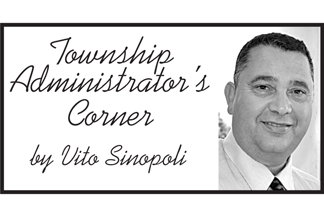Township Administrator’s Corner by Vito Sinopoli
In a move that has ignited a heated debate across Ohio townships, the Building Industry Association of Central Ohio (BIA) has commissioned a report advocating for the elimination of township zoning authority throughout the state. This proposal, if adopted through legislation, would essentially strip Ohio townships of their power to regulate land use, sparking concerns among township officials who fear the loss of community identity.
The central argument presented in the BIA-commissioned report is that township zoning regulations are both costly and cumbersome for developers. The document contends that the current system hinders economic growth and development within these communities, pointing to the need for a more streamlined and efficient approach to land-use regulation.
One of the key issues highlighted in the report is the perceived inadequacy of affordable housing options in townships due to zoning restrictions. The BIA argues that by eliminating local township zoning, a more uniform and state-managed approach could be implemented, allowing for increased flexibility in housing development and a potential boost to affordability.
Notably, the proposal focuses exclusively on townships, leaving cities and villages unaffected. The rationale behind this distinction appears to lie in the fact that cities and villages under Ohio law do not subject zoning decisions to a referendum vote, unlike Ohio townships. The report suggests that a state-managed zoning system would make the building process more efficient and avoid potential roadblocks to development.
Bath Township officials, however, are concerned about any legislation that would change township zoning in favor of a state-managed system. Executive Director Heidi Fought of the Ohio Township Association recently attended a meeting of the Township Association of Summit County, of which Bath Township is a member. She expressed concern with the BIA report, arguing that stripping townships of zoning powers would convey a lack of trust in township officials to manage their communities. The fear is that a one-size-fits-all state system might overlook the unique needs and characteristics of individual townships, resulting in the loss of community identity.
Fought suggests the impetus behind the BIA report stemmed from three separate housing development proposals in central Ohio: one in Violet Township in Fairfield County, another in Genoa Township and a third in Union County that were rejected. In the Genoa Township and Union County cases, the developers’ plans were subject to a referendum vote that reversed the approval of zoning map amendments for the developments.
The potential for a legislative proposal has raised the specter of a significant impact on township zoning, with critics arguing it would undermine the very essence of local governance. Residents accustomed to having a say in local land-use decisions through referendum powers, may find their voices diminished in favor of a state system that might not prioritize the nuances of each community.
In response, local officials are gearing up to reach out to legislators, expressing their concerns and advocating for the preservation of local zoning powers. The battle over the future of township zoning is expected to play out in the coming months as developers present their case in a bid to shape the future of Ohio land-use regulation. An Ohio Senate select committee on housing is currently taking testimony to evaluate the zoning process throughout the state. While there is currently no legislation being considered to change township zoning authority, there is concern momentum on this topic will grow.
As the debate over eliminating township zoning authority continues, Ohio townships will argue against a state-managed system. The outcome of this issue will ultimately determine the landscape of land use regulation and community identity in townships. With the support of the Ohio Township Association, Bath Township, along with over 1,300 member communities, will continue to oppose any legislation that would seek to change Ohio township zoning laws in effect since 1947. ∞

